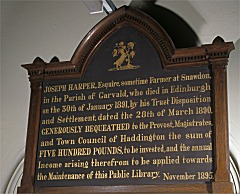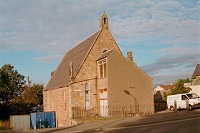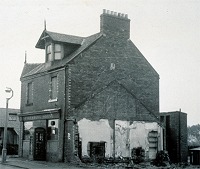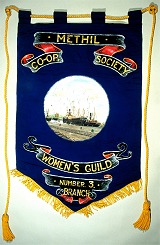Contents ![]() | The earliest public libraries
| The earliest public libraries ![]()

Learning SHELF
Learning in Edinburgh, the Lothians and Fife has a rich and honourable tradition. This website examines the development of libraries, institutes and other organisations. Most were set up by groups of people for their mutual benefit, long before there was any official recognition that they were necessary. The illustrations used throughout the text come from local authority local history, library, museum and other collections in the area. Often, these bodies have inherited the duties begun through the initiatives of the past discussed below.

The site discusses the origins of public library services. These were varied and there were some interesting experiments along the way, particularly the East Lothian itinerating libraries that pioneered rural provision. Groups of people banded together to form reading clubs and to share books. The natural progression was to open a subscription library. Booksellers opened their own commercial libraries, charging fees: these were circulating libraries.
Local authorities absorbed many existing libraries after the Public Libraries Act of 1853. Many were stimulated to do so by the largesse of Andrew Carnegie of Dunfermline. It took until the middle of the 20th century to complete this process. By that time libraries delivered much more than books to their communities.

The impulse to learn was prevalent amongst the 19th century working classes. Schools of art (mechanics' institutes) opened in many communities. Reading, debating and literary clubs had a role in informal education. They also raised awareness about matters of public concern. Their members joined in political campaigns such as Reform and Suffrage.
A few individuals had a key role in many of these organisations, through intellectual and financial support. Other movements like Gothenburg or Trust Public Houses, miners' institutes and organised youth movements also had a place.

Many of these initiatives are inseparable from the 19th century Reform movement that extended the right to vote. Women's suffrage led to the formation of the Scottish Women's Rural Institutes and the co-operative movement spawned co-operative women's guilds. Even today, reading groups meet to learn about books and a few literary and debating societies still remain.
In our time the government has placed increasing emphasis upon life long learning. This was a message known and understood by the artisans of Edinburgh two centuries ago when 600 voluntarily attended the first lecture of the Edinburgh School of Arts.
Contents ![]() | The earliest public libraries
| The earliest public libraries ![]()